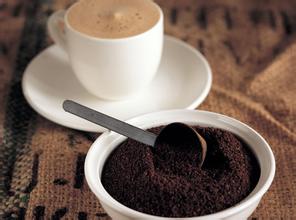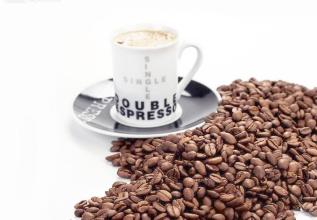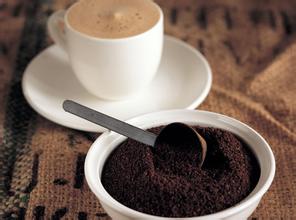Galapagos coffee producing area Galapagos coffee flavor
In 1875, ManuelJ.Cobos, an indigenous Ecuadorian, began to grow Arabic bourbon coffee trees in the Hasunda Coffee Garden (HaciendaElCafetal) in San Cristobal.
Coffee producing areas of the Galapagos Islands:
Coffee is grown in San Cristobal (SaintCristobal). Arab bourbon coffee trees are planted in the Hasunda Coffee Garden (HaciendaElCafetal) in San Cristobal. The elevation of the plantation is between 140 and 275m, and the climate of the area is equivalent to that of 915m to 1830 m inland. This gradient is suitable for the growth of high acidity extra hard coffee beans (SHB) and is the key to the high quality of coffee.
St. Cristobal is a larger island in the Galapagos Islands (Galapagos Islands) and the only one in the archipelago with plenty of fresh water. At an altitude of 410m, there is a small lake called El.Junco, which forms streams along the rocks and volcanic rocks on the southern slope of the island, and mineral-rich fresh water moistens the land of St. Cristobal, keeping the soil moist and fertile. The local microclimate caused by the Humboldt current (HumboldtCurrent), strong equatorial sunlight and sharp temperature changes (43 degrees at sea level and 10-16 degrees above sea level at 275m) provide unique advantages.
Features of Galapagos Islands Coffee:
The coffee produced in the Galapagos Islands (Galapagos Islands) is a treasure of coffee. It is of excellent quality and is grown without any chemicals.
Flavor: rich in taste, sweet in sour
Suggested baking method: medium baking
★★★: excellent
Galapagos Islands Coffee Market:
Because of the unique role of the Galapagos Islands in the course of history, the Government of Ecuador has designated the Galapagos Islands as a national park, the land is no longer allowed to be reclaimed as new agricultural land, and the introduction and use of chemical fertilizers, pesticides, herbicides and other chemicals are strictly prohibited, so coffee in the Galapagos Islands is recognized as a natural product.

Important Notice :
前街咖啡 FrontStreet Coffee has moved to new addredd:
FrontStreet Coffee Address: 315,Donghua East Road,GuangZhou
Tel:020 38364473
- Prev

Bolivian Coffee Bean Flavor Bolivia Coffee Manor South America is rich in coffee beans, Bolivia
South America is rich in coffee beans, and Bolivia is no exception. The unique tropical rain forest environment in some parts of Bolivia provides excellent natural conditions for the growth of organic coffee. The aroma of Bolivian coffee is rich and unique, both the aroma of ground beans and the aroma of coffee are obviously rich, similar to the mixture of flower and fruit aroma, which is impressive.
- Next

Characteristics of boutique 90 + coffee
Some people call it 90 plus, but the manufacturer formally asks: please call us 90 +. Ninety + does not refer to all coffee with a score of more than 90. Good coffee, one year, one year. Sometimes haunt different manors, but also have different taste characteristics. Ninety + refers to a top range of coffee with 13 flavors. These coffees are only from American boutique coffee creator Ninety P.
Related
- Detailed explanation of Jadeite planting Land in Panamanian Jadeite Manor introduction to the grading system of Jadeite competitive bidding, Red bid, Green bid and Rose Summer
- Story of Coffee planting in Brenka region of Costa Rica Stonehenge Manor anaerobic heavy honey treatment of flavor mouth
- What's on the barrel of Blue Mountain Coffee beans?
- Can American coffee also pull flowers? How to use hot American style to pull out a good-looking pattern?
- Can you make a cold extract with coffee beans? What is the right proportion for cold-extracted coffee formula?
- Indonesian PWN Gold Mandrine Coffee Origin Features Flavor How to Chong? Mandolin coffee is American.
- A brief introduction to the flavor characteristics of Brazilian yellow bourbon coffee beans
- What is the effect of different water quality on the flavor of cold-extracted coffee? What kind of water is best for brewing coffee?
- Why do you think of Rose Summer whenever you mention Panamanian coffee?
- Introduction to the characteristics of authentic blue mountain coffee bean producing areas? What is the CIB Coffee Authority in Jamaica?

